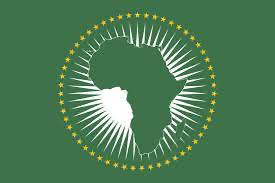Description

Disclaimer: Copyright infringement not intended.
Context: The Indian Prime Minister Narendra Modi has written to the leaders of the G20 nations, proposing that the African Union (AU) be granted full, permanent membership in the G20.
Details
- Indian Prime Minister Narendra Modi has written to the leaders of the G20 nations proposing the African Union be given full, permanent membership in the diplomatic group.
- The proposal aims to strengthen Africa's representation and partnership in shaping global affairs.
- Modi's proposal suggests granting the African Union full membership in the G20.
- Demonstrates India's commitment to enhancing Africa's representation and influence in global decision-making processes.
Significance of African Union Membership:
- Enhances a just, fair, inclusive, and representative global architecture and governance.
- Supports the vision of giving a greater voice to countries from the Global South, particularly African nations.
.jpeg)
About African Union
- The African Union was established to replace the Organization of African Unity (OAU) with the goal of accelerating Africa's integration and development.
- The AU seeks to promote peace, security, and stability on the continent, enhance economic cooperation, and advance the social and political well-being of African citizens.
- It serves as a platform for African nations to collaborate on various issues and represent their collective interests on the global stage.
Member States:
- The African Union has 55 member states, which include all recognized sovereign countries in Africa.
- Member states actively participate in the AU's decision-making processes, summits, and various specialized committees and organs.
- The AU provides a forum for African leaders to engage in dialogue, address common challenges, and work towards shared goals.
Organs and Institutions:
- The AU consists of several organs and institutions that contribute to its functioning and implementation of its objectives.
- The Assembly of the African Union is the highest decision-making body, comprising the heads of state and government of member countries.
- The Executive Council, composed of foreign ministers, assists the Assembly in making policy decisions.
- Other key institutions include the Pan-African Parliament, African Court of Justice and Human Rights, African Commission on Human and Peoples' Rights, and African Union Commission (AUC).
Focus Areas and Initiatives:
- The AU works towards resolving conflicts, preventing genocide, and promoting peace and security in Africa. It deploys peacekeeping missions and supports mediation efforts in various regions.
- The AU promotes economic integration, trade, infrastructure development, and regional cooperation to foster sustainable development across the continent.
- The AU advocates for good governance, democracy, and the protection of human rights. It monitors elections, supports democratic transitions, and addresses issues related to governance and rule of law.
- The AU prioritizes gender equality, women's empowerment, and the rights of women and girls in Africa. It has established frameworks and initiatives to promote gender mainstreaming and women's participation in decision-making processes.
- The AU addresses public health challenges, such as communicable diseases and pandemics, and works to improve access to quality education and skills development across the continent.
Partnerships and Collaborations:
- The AU engages with regional economic communities, international organizations, and other stakeholders to enhance cooperation and coordination.
- It collaborates with the United Nations, African Development Bank, European Union, and other entities to support the implementation of its programs and initiatives.
- The AU also works closely with non-governmental organizations, civil society, and the private sector to leverage expertise and resources for African development.

About G20
Establishment and Purpose:
- The G20 was established in 1999 in response to the need for a more inclusive and representative platform for global economic cooperation.
- It aims to facilitate dialogue, coordination, and cooperation among member countries on key economic and financial issues to promote global stability, growth, and development.
- The G20 provides a forum for leaders to discuss pressing challenges, exchange views, and collaborate on policy responses to address them.
Membership and Representation:
- The G20 consists of 19 countries: Argentina, Australia, Brazil, Canada, China, France, Germany, India, Indonesia, Italy, Japan, Mexico, Russia, Saudi Arabia, South Africa, South Korea, Turkey, the United Kingdom, and the United States.
- Additionally, the European Union (EU) is also a member, represented by the European Council and the European Central Bank.
- The G20 members are selected based on their economic significance, global influence, and regional representation.
- Together, the G20 countries represent around 85% of global GDP, over 75% of global trade, and about two-thirds of the world population.
Role and Functions:
- The G20 serves as a platform for member countries to coordinate their economic and financial policies to achieve global macroeconomic stability, sustainable growth, and poverty reduction.
- The G20 engages in discussions on a wide range of economic and financial issues, including trade, investment, monetary policy, fiscal policy, financial regulation, and sustainable development.
- During times of financial or economic crises, the G20 plays a crucial role in facilitating international cooperation, sharing information, and coordinating policy responses to mitigate the impact and restore stability.
- The G20 addresses global challenges such as climate change, energy security, digital economy, and inequality, recognizing their impact on the global economy and the need for collective action.
Annual Summits and Meetings:
- The G20 holds an annual summit attended by heads of state or government of member countries, along with representatives from international organizations.
- The summit provides an opportunity for leaders to engage in high-level discussions, make joint declarations, and endorse policy measures.
- In addition to the summit, various ministerial and working group meetings take place throughout the year, focusing on specific thematic areas and issues.
Engagement with Non-member Countries and Organizations:
- The G20 invites a set of guest countries to its summits, representing different regions and international organizations.
- Guest countries are selected based on various factors, such as regional representation, economic significance, and engagement with the G20 agenda.
- International organizations, including the United Nations, World Health Organization, World Bank, International Monetary Fund, and others, are also invited to participate in G20 meetings and contribute their expertise.
Outcomes and Impact:
- The G20's discussions and policy coordination have a significant impact on the global economy, financial markets, and international cooperation.
- Summit declarations, action plans, and policy commitments made by the G20 influence national policies and shape the global economic agenda.
- The G20's response to crises, such as the 2008 financial crisis and the COVID-19 pandemic, has played a crucial role in stabilizing the global economy and facilitating recovery.
|
PRACTICE QUESTION
Q) In recent years, India has advocated for greater representation of African countries in global forums like the G20. Discuss the significance of India's proposal to grant full membership to the African Union in the G20. How can this initiative contribute to a more inclusive and representative global governance architecture? (200 words)
|
https://www.reuters.com/world/indias-modi-seeks-african-unions-full-membership-g20-2023-06-18/













